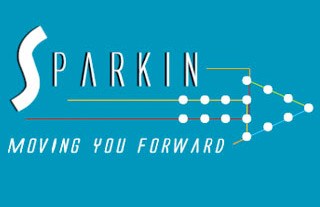How to positively manage the effects of sudden changes in a new job
I regularly receive calls that talk to an individual having started a new job and a few months in, it is unrecognizable from expectations, not simply because of a changed challenge but in terms of what was promised about people, the value of their expertise in the agency/company, the culture, resources, leadership and clients. The boss that hired you leaves, the client it turns out is completely unreasonable and/or not embracing the value your expertise can bring and/or, the function you represent period, for example strategic planning. And, the department of which you are a part, doesn’t seem to have any practical leadership. These are just a few examples of challenges I’ve heard someone newly employed describe to me as they asked what they should do.
Now, it’s true, situations in the agency and business world can and do change very quickly. The role you were hired for can become manifestly different. Where you confront such a situation in a new role (1-3 months) you should ask yourself the following three questions:
Is the change significant enough that you believe you cannot be effective in the new role?
Can you through discussion alter the changed circumstances so that you can be effective?
Is there an opportunity for professional progression/a chance to develop your expertise even with the changed circumstances?
If the answer to all the above questions is “no,’ you should leave the role. If you take no action you are very likely going to go around in circles as you fail to direct your career. A better approach, whether you leave depends on rationalizing a course of action based in my opinion, on three factors: Your sanity; Your reputation; Your resume.
Sanity
More important than your reputation or resume is your state of mental health. Being in a situation for which you are unprepared, unsuited or simply don’t desire can adversely affect your mental state of mind. Extreme stress arises due to a complete lack of support or from a role or circumstances significantly different from those you believed you were being hired for. In such a situation if you cannot, even after talking with someone you trust, get clarity or assurance that the job you are being asked to perform will, in some timeframe align with that that you were hired for, then you should seriously consider leaving the agency.
Reputation
Whenever you are delivering a product or service you have been paid to deliver, the consistency and quality of that delivery is what your reputation is in large part based. Clearly other people’s perception of you are based on other factors too significantly, being seen to be easy to work with/cultural fit. A positive/can do attitude is the ally of a great reputation but even that is not enough if the quality and consistency of your work is not up to par. So whenever there are persistent factors that are out of your control and you cannot resolve, that will materially affect the consistent quality of your work, that would also be a reason either to change your current role with your current employer or to leave. Your reputation takes time to build but it can be damaged very quickly. You cannot afford to persist with anything that damages your ability to be the best you can be.
Resume
I’m often asked, even when an individual is unhappy and is struggling in their new role, ‘Should I stay another six months?’ I’m being asked this question even though there are no obvious concerns about mental health or loss of reputation that is, they can do the job but they are not happy or motivated by it. They are considering leaving their job but hesitating because of how this might look on their resume, their leaving a job after a short period of time. Clearly, if you have left your last two jobs within six months it becomes more important to prove you can commit. The question also arises whether the individual is simply ‘unlucky’ in their job selection or failing to properly qualify the jobs they are subsequently accepting. Irrespective, if what’s at stake is your state of mental health or reputation for delivering great work, these are compelling reasons for change, irrespective of how your resume looks.
Avoiding the Perfect Storm = A sudden loss of your job without any preparation to get the next one..
A Sinking Ship
It’s the middle of the night and you are awoken to a shrieking alarm piercing the beautiful world that your dreams had transported you to. Brutally torn in to consciousness, you need to get out of the cabin and on to the deck. It’s dark, you are three decks down and for all you know the ship is sinking and this is not a drill!
Approaching the end of the financial year can be a very uncertain time for agency employees, as agencies desperate to make their numbers, cut the only meaningful costs, payroll. What can you do to mitigate this uncertainty?
Life can sometimes send us a perfect storm and we should anticipate the possibility by preemptively ensuring we are able to jump to another ship. Anticipation will ensure the other vessel is a yacht sailing quickly in to calmer and more prosperous waters, versus another sinking ship!
Preparing to Evacuate – Fire drills make sense
Don’t wait to make connections with other agencies and businesses; Don’t wait to have an up-to-date resume; Don’t wait to be engaged with social media, building your own reputation. And certainly don’t wait to be building specific expertise and achieving meaningful results. When you finally decide it’s time to move from your current job, be prepared in the only way you can be, leave from a position of strength. Don’t leave it until you’re desperate, until the alarm bells are ringing rather, plan ahead and, have a clear sense of what it is you are looking for. Anticipate that there could be an emergency and avert its effects because of you preparedness.
The whole idea of ‘on-going preparedness,’ covered in my previous article, ‘Mitigating Risky Career Maneuvers’ aimed to address. (The idea of actively every day preparing yourself for your next role.) https://www.linkedin.com/pulse/mitigating-risky-career-maneuvers-stuart-parkin?trk=prof-post
Significantly, even if you are prepared to leave one ship for another, you then need qualify information in order to make a fair assessment as to whether an opportunity (or ship) in front of you is the best one for you.
How to gain a true sense of the opportunity?
When somebody is desperate to hire you, be mindful that they will, whether they know it or not, try to ‘sell’ you and therefore, may be tempted to tell you what you want to hear.
Equipped with a sense of what role and circumstances will make for a great professional progression, your challenge is to ask questions which do not alert the interviewer to the information you need objective answers to.
Can I be successful in this role?
To understand whether you can be successful in a new role requires an understanding of culture, leadership style, agency goals, team, strategic style and the resources and timeframe you will have to deliver. And if working on an account, the state of the account and why the role exists for which you are being hired. You should have a clear sense of the value associated with your core skills in the new agency.
Which questions help me to truly qualify the opportunity in front of me?
So, what types of questions help you evaluate the opportunity for your next career step: Some good ones include:
Who does the agency regard as its main competition? = what type of work is ‘really done’
How does the agency primarily derive its revenue? = What is the real channel focus here?
What type of work is most celebrated here? = Creative, strategic, cost saving?
What characteristics do successful people here exhibit? = What/Who is valued?
Why is your agency successful? = What defines success here?
What is the biggest anticipated change expected here in the next year? = Gives the interviewer a chance to inform you about pending leadership, client or organizational changes.
What does a successful 2016 look like for the agency? = How ambitious are people here?
Loyalty – There’s No Need to Fall on Your Sword!
Gnaeus Domitius Corbulo, a Roman general, senator and consul under the Emperor Nero, ‘a Patten’ of his day, was inexplicably ordered by Nero, to take his own life. Nero, the Roman Emperor, was jealous of Corbulo’s military success and feeling threatened both by his ability and military backing, ordered Corbulo to do the unthinkable except to someone known to be completely loyal. Nero ordered Corbulo to fall on his sword, literally. Corbulo followed the order and as his sword was about to strike the sanctity of loyalty personified, he uttered the word, “Axios,” ‘I am worthy; I am loyal.’
Almost a daily conversation I have with individuals involve the words, ‘I am loyal.’ These are noble words, sought after words, words that any of us, personally or professionally would wish to hear from those around us! Why? Because the utterance of those words ‘I am loyal’ says as much about the individual as perhaps it does about us, that is if they are made in relation to us…Our family, our relationship, our agency. And even if they are not made in relation to us, the person uttering the words does so believing we understand the significance of those words.
All relationships, personal and professional, are based on loyalty, defined as a, ‘faithfulness to a person, country, group or cause.’ The value of loyalty in relationships, is that it allows for ‘some’ degree of certainty in planning, crucial to the running of anything, but particularly an agency. (Arguably one of the key threats to the advertising world is the lack of loyalty.) So how does such ‘faithfulness’ manifest?
Loyalty is not something that typically emerges overnight, although it can develop quickly when individuals, groups or teams face great adversity as it is under the most extreme circumstances that true allegiance is revealed. That said, loyalty is something that usually takes time to evolve and is earned when individuals believe others are genuinely invested in them and seek to respond in kind.
Equally, Fealty in a work context is not something that appears without a belief that the boss, the team, the agency culture, that we are loyal to, has not given to us over and over. This giving can be in the form of developing our business savvy, financial support or recompense, in developing the way we think, in creating a ‘virtual family’ for us, so long do people spend at work… The key point, ‘we’ feel that the boss, the team and/or the agency has provided things we consider to be very valuable and meaningful to us with the net effect, we feel beholden, defined as ‘owing thanks or having a duty to someone in return for help or a service.’ And, we should feel this, to a point. Where that ‘point’ is depends on how we have benefited and, what we have given in return, the most valuable thing that we can give, our time.
So, what of the daily utterance I hear, ‘I am loyal?’
Firstly, it is a good thing to here but, there is a true difference between loyalty to the animate and to the inanimate. To a person, a boss, a team when compared to a brand, a culture, an agency. One exists whilst the other ‘exists’ to make money. One has given to your development for reasons that might include money but invariably has given for personal reasons, there’s and yours. The other is not typically interested beyond your ability to help make money!
Very often an individuals’ sense of loyalty is misplaced. It is not to a boss or team, which have long since left the agency, but to the agency, which will hire or fire them very largely based entirely on business numbers, with little thought about them or the impacts of sudden job loss for them. Anyone that believes this is not true will be fortunate in their careers if they do not experience the reality of losing a job. (Perhaps they haven’t taken enough risks?) Then again, this is the power of a culture, that an individual can feel so much continued loyalty.
Secondly, whilst no-one can question the value of the trait of loyalty, there is a clear difference between loyalty and blind-loyalty, ‘being loyal to a person, agency or cause despite the damage the person/agency/cause inflicts.’
Damage is a relative term and typically more one of opportunity cost. The damage is relative loss of opportunity for more rapid development, be that more money, responsibility, practical and intellectual development to name a few things. Loyalty is proffered with the feeling that what has been provided for the individual and their development requires in turn that individual should not work for another boss, or team and certainly not for another agency as they perceive this would be ungrateful or in the worst case, disloyal.
My belief is that loyalty is a great thing, to experience or to seek. I say this as it means we have had great people around us, that we feel have shown an interest in our development. We should repay this loyalty to individuals certainly and to the nebulous concept of the ‘agency’ as well. But, today we have to be the Chief Coach in the management of our own careers. If we’ve had a nurturing boss, team or culture, fantastic. If others are mapping out our development for us and, we are growing, then ‘we’ are fortunate indeed. But that said, past growth is great, but it is, past. We need to continue to develop. And, if we can no longer do this in our current role, we must seek it most certainly in the agency to which we are loyal first and then if necessary, to look beyond.
Reviewing market possibilities or simply comparing our current salary, benefits and opportunities can actually make us even more loyal as we have a renewed sense of how well we are being looked after. Although, reviewing market opportunities can also be a wake-up call as individuals do see real opportunity for more rapid advancement. Some might suggest, in simply asking about the broader market, that an individual is acting in a disloyal manner I suggest not if you give your current employer every opportunity to keep you growing whilst you keep working hard and focused and take the suggested steps below.
Initially, we should seek the counsel of those individuals that have always helped us, to give them the opportunity to reassure, to re-equip or to provide new challenges. We should where possible (and where we believe the agency has the ability to deliver) be open about how we hope to develop. This openness along with all our hard work, is the way to return loyalty. (sometimes it is impossible to be open.) Having done this, if we are still unable to continue to develop in our current role or place of work, then we should look for new career challenges with our heads held high and in the words of General Corbulo, but without the tragic consequences, we can to ourselves at least, utter, ‘axios’ or, ‘I am worthy.’
Full Job Security – Is It Possible?
None of us have true job security anymore. Downsizings, repositionings, mergers, bankruptcies… –they can all take down the most talented of professionals.
In the face of uncontrollable risk there is only one thing to do: proactively take responsibility for your career. Not simply when you realize you need a new job, but all the time. a newsletter for creative strategy/brand planning professionals
The best way to take control and secure your future is to do a great job, but this is easiest when you’re in the right job, in the right environment, using your strongest skills and experiences and with the right management support. This in turn requires on-going monitoring of your career, a good degree of self-awareness and, occasionally, some help.
Get these in place and you’ll be in good shape. So, don’t wait. Instead, ‘become your own rainmaker!’
Looking forward to talking with you about your career progression. Let me know if you have any questions on this or related topics.
Stuart
Articles and commentary that might be of interest…
- Become The Rainmaker In Your Own Career
- The Disciplined Pursuit Of Less
- Should You Re-Brand Your Career?
- How ‘Doing What You Love’ Can Be A Realistic Career Option (and also)
- Jump-Start Career Change
- How To Explain Your Career Transition (and also)
- My Bounce Back
- Is It Time For Careercation?
Contact me for a list of resources –Best Visa, Passport and Work Permit Websites









